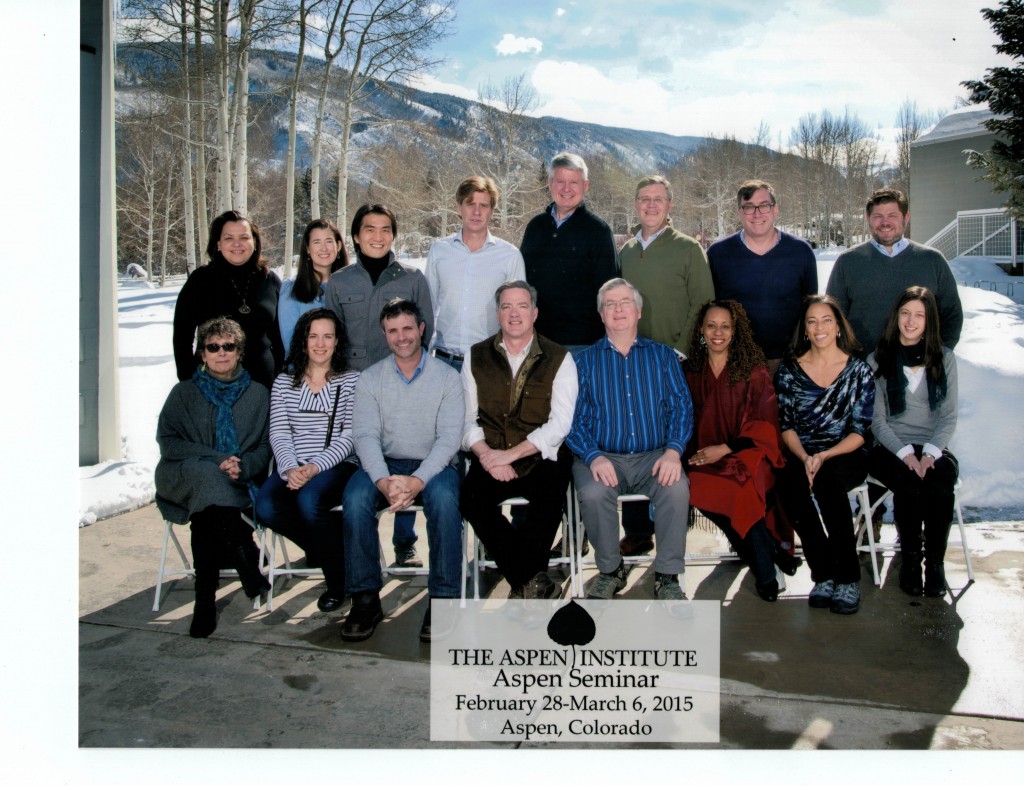Before my blogging break, I had the wondrous opportunity to attend the Aspen Institute’s Seminar on Leadership, Values and the Good Society. I found the experience a rewarding, albeit challenging one. It stretched me well beyond my introverted comfort zone. (Read my series about it here).
The seminar was geared toward leaders, and I found myself uneasy that I was not a leader in the traditional sense. There was one professional artist – a novelist – in attendance, and she admitted she felt the same. It was something I pondered throughout the experience.
I tend to take labels, categories and rules quite literally. And although I sometimes bend or break or mold things to suit me, other times I allow myself to feel confined and constrained. Quite often, the more constrained I feel, the more likely it is I’ve built the prison myself. In other words, I’m free to be or express myself, but I impose the limitations. It’s a lifelong struggle. In some moments I am able to break through, but others find me longing for true freedom.
I’m working on it.

In that setting, I gave up a lot of my freedom and power to external circumstances. I had a sense this gathering was important, that I was somehow lucky to be there and although smart enough to understand the content, not really “qualified” in the technical sense. Classic impostor syndrome: What if they find out I don’t belong?
I know and understand many models of leadership, especially those on an intimate scale. Leadership in a classroom. In a family. In a situation. Still, in this group, I felt as if that wasn’t enough. That maybe, I wasn’t enough.
These were my internal demons. Lies. And yet there I was, chipping away at the lies each moment of the Seminar. Each session found me reframing my internal dialogue, encouraging myself to participate. Reminding myself I belonged. I was leading myself to Truth.
In the closing session on March 8, 2015, we were to handwrite a letter to ourselves, responding to the following questions:
- What take-aways do you want to remember?
- What commitments will you make to yourself?
- What personal goals/changes do you want to make?
The seminar organizers promised to mail those letters six months later, and I received mine right around Labor Day this year. I won’t share all the details, but I will share my closing determination:
Lead through art!
Looking back on the experience, I feel more confident of my ability to contribute in the future. To be myself. To realize that in a room of leaders with highly regarded and diverse experiences, I belong.



